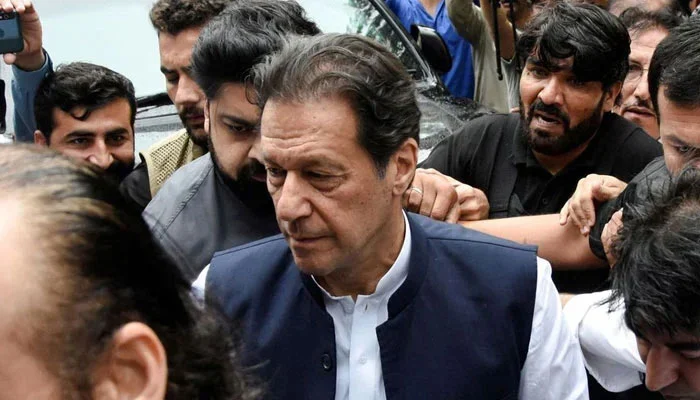ISLAMABAD: Imran Khan, the founder of the Pakistan Tehreek-e-Insaf (PTI), filed a petition with the Supreme Court on Wednesday to overturn the rejection of his nomination papers for the Lahore and Mianwali constituencies in the polls scheduled for February 8.
The former prime minister’s nomination papers were turned down for two National Assembly seats in the upcoming elections: NA-122 in Lahore and NA-89 in Mianwali.
The returning officer (RO) tasked with reviewing the NA-122 constituency’s nomination papers declared, “The PTI founder has been convicted,” outlining the reasoning behind the ruling and striking a blow to the PTI just before the polls.
Following opposition from Pakistan Muslim League-Nawaz (PML-N) leader Mian Naseer, who cited Khan’s five-year disqualification in the Toshakhana case—where the electoral body had declared him guilty of corrupt acts under Section 167 of the Elections Act, 2017—the papers were rejected.
The opposition further said, “PTI founder’s proposer and seconder do not belong from NA-122.”
The former leader of the PTI had appealed to the Lahore High Court (LHC) against the papers’ denial, but the court rejected his request and maintained the RO and appellate tribunal’s rulings.
Khan requested in his Supreme Court case that the court grant him the right to run in the two constituencies.
“The notification of disqualification under Article 63 (1)(h) is ineligible,” stated the argument. It further asserts that a moral offense must be committed in order for a person to be disqualified under Article 63 (1)(H).
Additionally, the petition claimed that there were no moral justifications for the Toshakhana case conviction. “The decisions of the returning officer, Election Tribunal and high court should be declared null and void,” Khan asked for.
In the Toshakhana case, Khan and his spouse, Bushra Bibi, were sentenced to 14 years in prison earlier today by an accountability court. The judge also imposed a ten-year disqualification on the former premier.
The PTI founder and Shah Mahmood Qureshi were given ten-year sentences in the cipher case the day before the decision was rendered.






